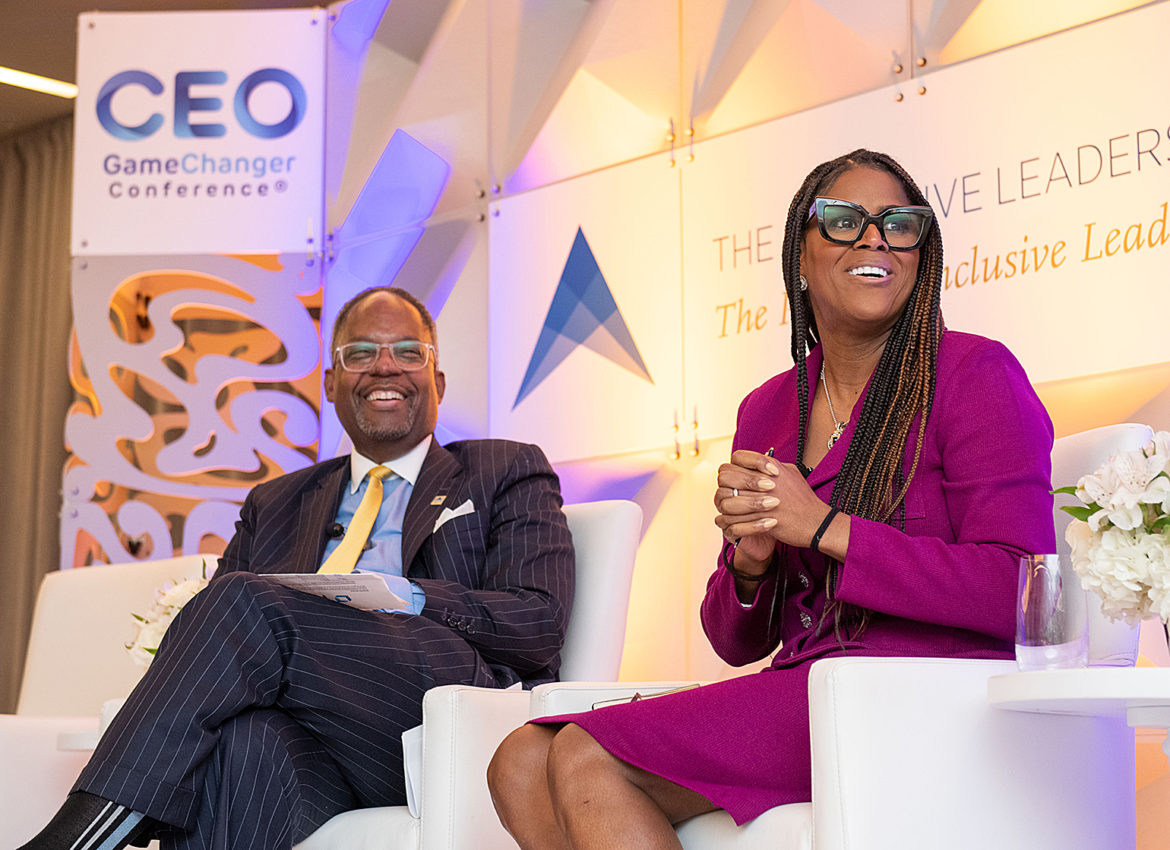Photo caption: Michael C. Hyter, President and CEO of The Executive Leadership Council, interviews Thasunda Brown Duckett, President and CEO of TIAA, during The Executive Leadership Council CEO GameChanger Conference® in Washington, D.C.
The fight for equality and parity in America and worldwide is centuries old and the executives profiled in this issue of SAVOY are among the most accomplished Black practitioners of Diversity, Equity, and Inclusion (DEI) in corporate America today. Many of these executives are members of The Executive Leadership Council (ELC), the pre-eminent membership organization of more than 800 current and former Black CEOs, senior executives, and board directors representing the largest companies, and major firms. The ELC works to build an inclusive business leadership pipeline that empowers global Black leaders to make an impactful contribution in the marketplace and in the global communities they serve.
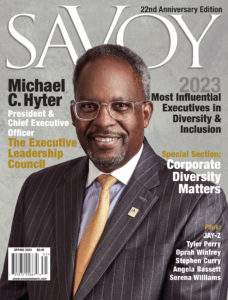 As you read the profiles of the featured diversity executives, it will be apparent that their influence and defined responsibilities vary widely. However, their missions are both clear and consistent. They are responsible for creating cultures of inclusion to build acceptance and advancement for all.
As you read the profiles of the featured diversity executives, it will be apparent that their influence and defined responsibilities vary widely. However, their missions are both clear and consistent. They are responsible for creating cultures of inclusion to build acceptance and advancement for all.
Last December, I hosted a LinkedIn Live webcast to explore why DEI efforts have not been as successful as they should be, and in some estimations have failed in corporate America, and what can be done to improve outcomes and representation. The discussion was held one year after the release of “Beyond Promises to Progress: Black CEOs and C-Suite Officers Speak Out on Diversity,” a report written for The Executive Leadership Council (ELC) by diversity and identity scholar Professor Stephanie J. Creary of The Wharton School. It presented a framework and roadmap for increasing Black representation in C Suites from the perspective of 17 current and former Black CEOs and senior executives, many of whom are ELC members, who have been doing this work for years. It challenged corporate CEOs to sustain the commitments made in the wake of George Floyd’s murder.
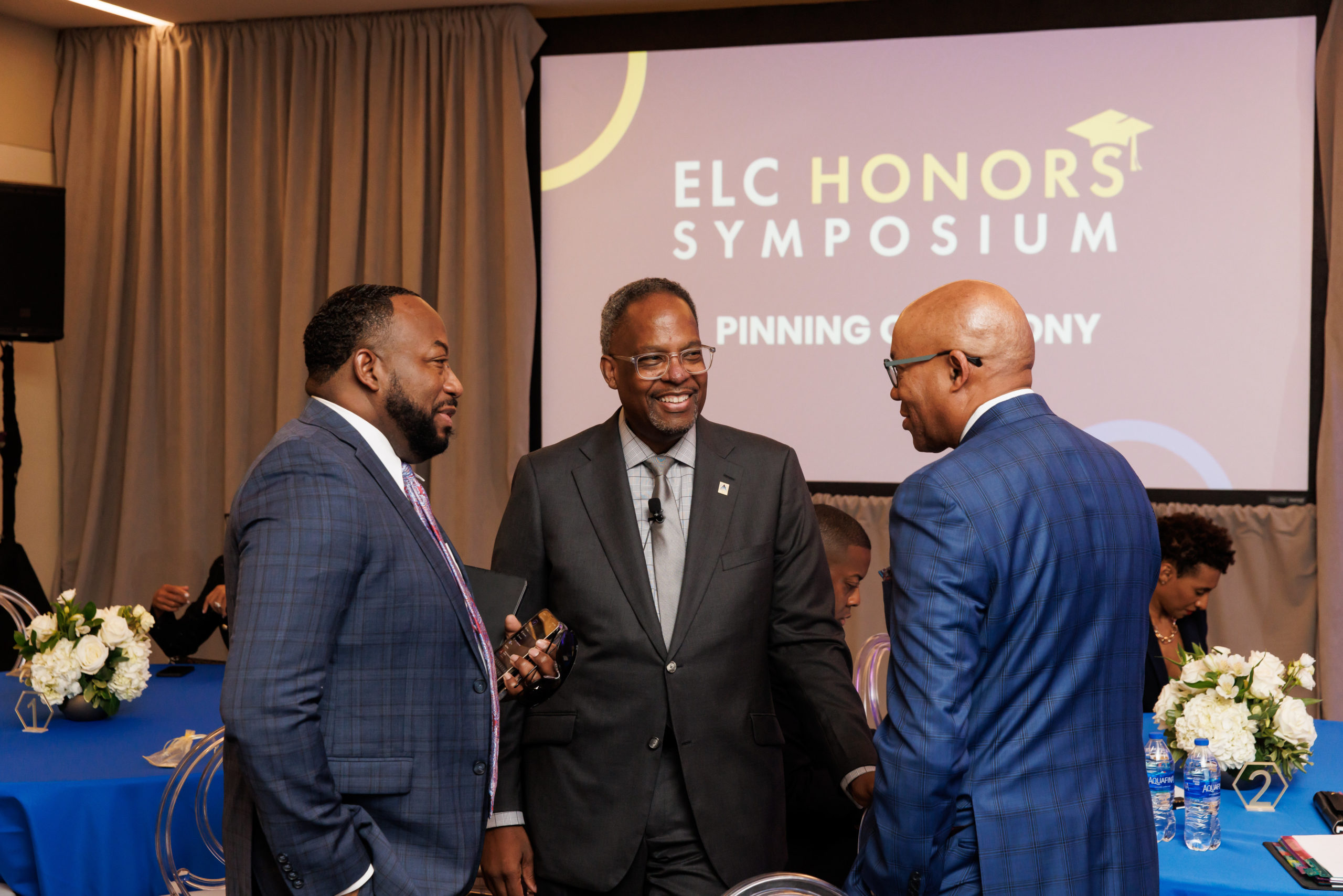
Michael C. Hyter, President and CEO of The Executive Leadership Council, chats with DK Bartley, Former Chief Diversity Officer, Moody’s, and Don Frieson, Executive Vice President, Supply Chain, Lowe’s, sponsors of the 2022 ELC Honors Symposium in Washington, D.C. More than 117 scholarships were awarded by The ELC and multiple corporate sponsors.
In the years since the rise of the Black Lives Matter movement and corporate pledges of $200 billion in resources to correct longstanding disparities and underrepresentation impacting the Black community, progress continues to encounter social, political, and economic headwinds. It mirrors resistance during the Civil Rights Movement of the 1960s that required passage of Title VII of the Civil Rights Act of 1964 to outlaw discrimination. It took nearly 10 years for major corporations to enter consent decrees to enforce equal employment.
As more companies evolved from quota systems driven by affirmative action initiatives, more opportunities for Black employees changed to include “diversity of thought,” other ethnic minorities, women, and many other diverse groups. Diversity executives were as varied as the reporting structures in their companies. Some were managers and directors operating independently or reporting to HR, finance, or Corporate Social Responsibility functions. As strategic and business benefits of DEI became apparent, more were named to C-Suite posts reporting directly to the chairman and CEO.
Yet, throughout the decades of progress, there are only about nine Black CEOs of Fortune 500 corporations today and there have not been more than 26. With Black people representing about 13.5% of the U.S. population, barely 2% of Fortune 500 CEOs are Black, 3.2% are senior managers, and 8% are professionals, as outlined in a report from Coqual (formerly the Center for Talent Innovation), “Being Black in Corporate America: An Intersectional Exploration.”
To address this disparity in corporate leadership, The ELC will launch a strategic initiative to increase our relevance and the sustainability of significantly increasing Black representation at every level in business, to reflect current demographics more accurately.
Another study, featured in our LinkedIn Live discussion, recognized that Black executives are better educated and have proven track records for appointments to CEO posts. When these exceptional leaders become CEOs, their companies experience a brief significant improvement in market value. Despite the recognition of the talent of Black leaders, CEO appointments are exceedingly rare, compared to other minorities and white women.
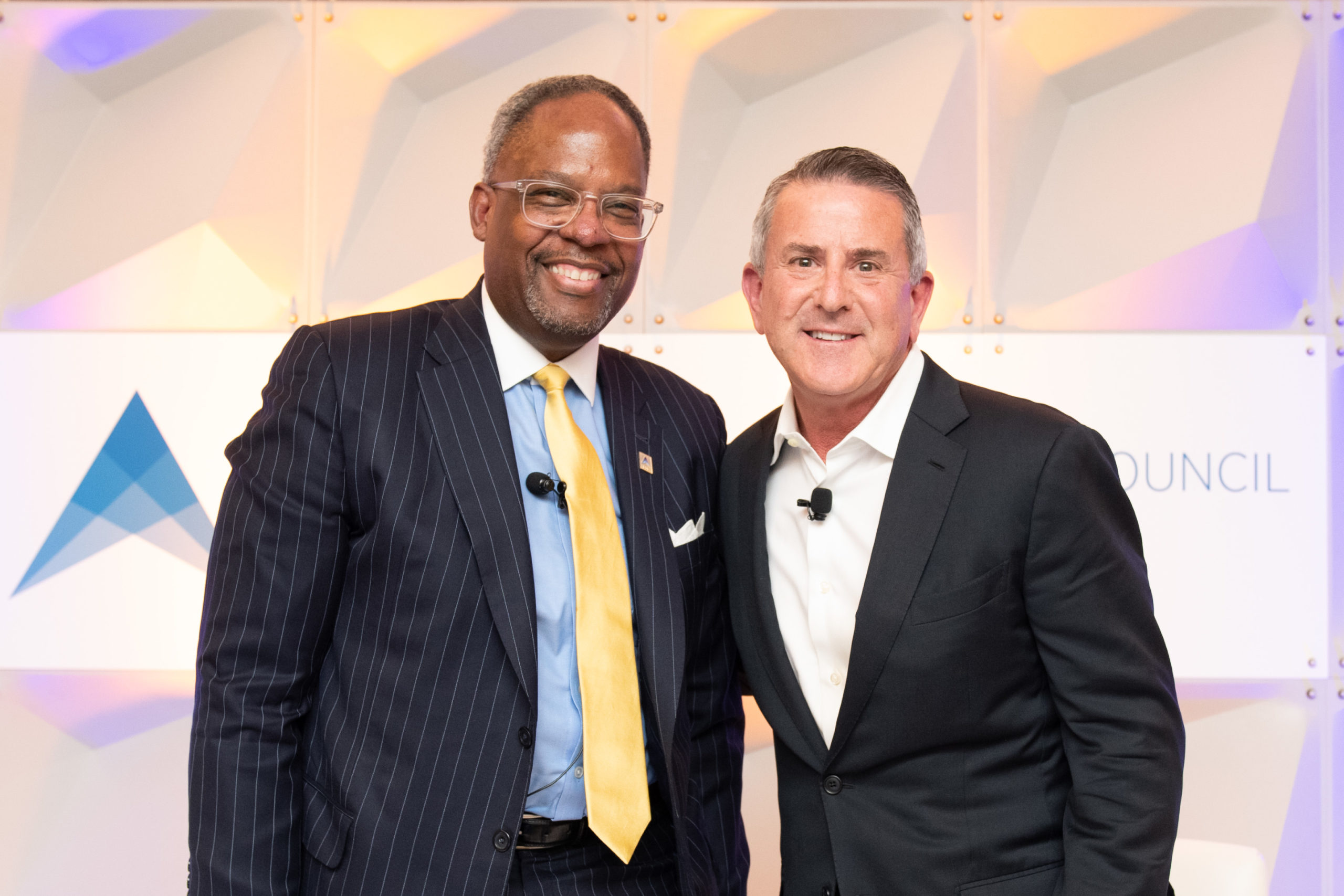
Michael C. Hyter, ELC President and CEO, with Brian Cornell, Chairman and CEO of Target Corporation, at The Executive Leadership Council 2022 CEO GameChanger Conference® in Washington, D.C.
Today, Black consumer representation is highly visible in advertising and branding. However, there remain broad structural disparities that DEI executives will continue to fight to overcome. Over the years I have worked with many companies and executives to help achieve sustainable progress with equity and inclusion, particularly for Black people. Every executive and every company face different sets of challenges, but in an era when K-12 schools are being confronted about the legal framework of Critical Race Theory, it becomes one more obstacle to Black executives achieving true equity and inclusion.
The ELC’s founders envisioned so much more than a group of executives who could gather and network among themselves. They created a place to find sustainable ways to move the needle for Black executives in corporate America, to better prepare Black professionals for a successful future at the highest levels of international business, and to nurture the pipeline to hold the door open for talented, Black businessmen and women coming behind us.
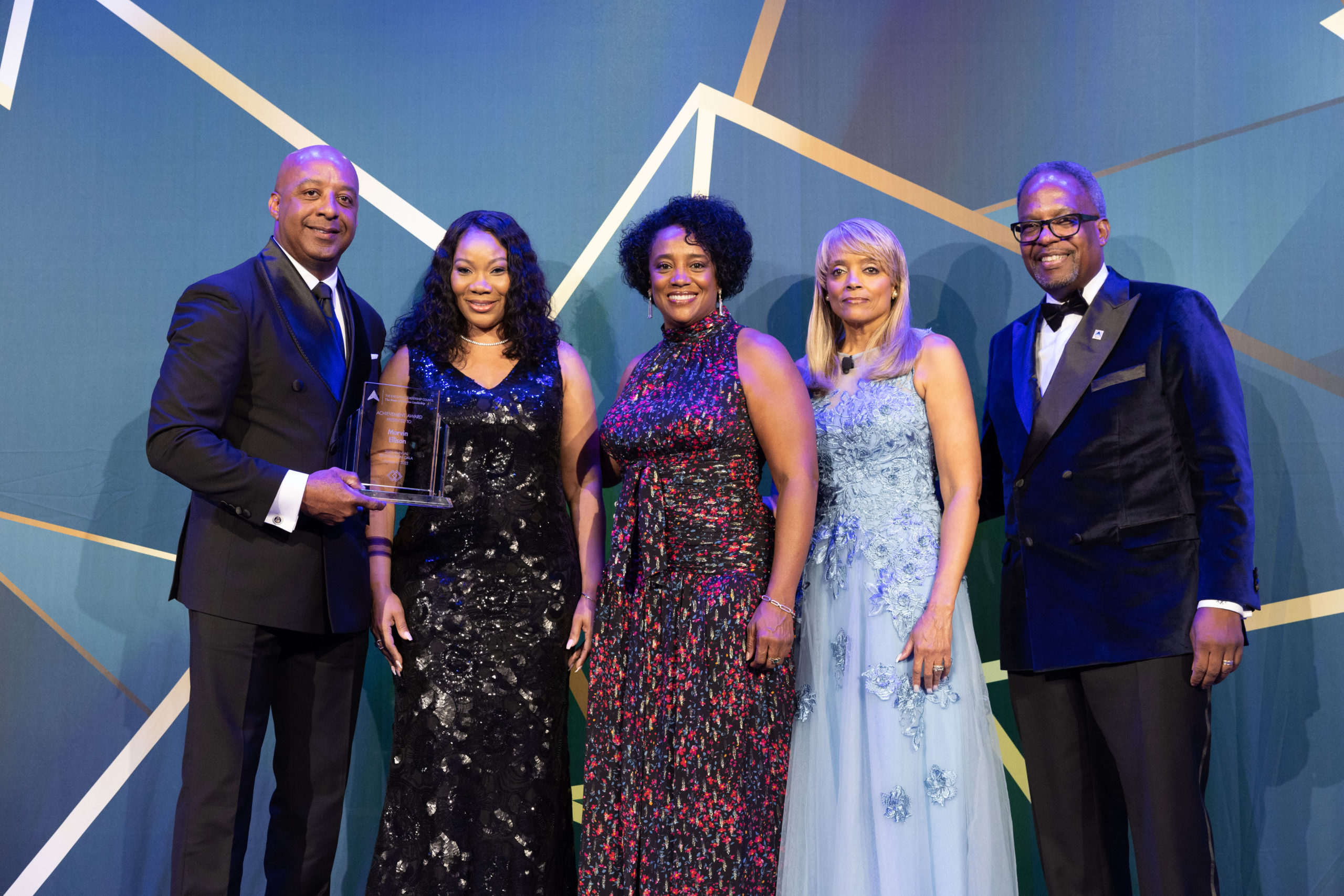
Lowe’s Companies Inc. Chairman and Chief Executive Officer Marvin R. Ellison (l.) receives The ELC 2022 Achievement Award at The ELC 2022 Gala. With Ellison are (l-r) his wife Sharyn; Lowe’s Executive Vice President of Human Resources Janice Dupré; ELC Gala Co-Chair Donna Wilson of Johnson & Johnson (Retired); and ELC Gala Co-Chair Michael C. Hyter, President and CEO of The Executive Leadership Council.
For more than 36 years, ELC members have worked with their companies and our strategic partners to continue the advancement made by those who came before us, and DEI executives have been instrumental in making progress. Our organization intends to increase our efforts in advocating for the power and influence of DEI executives. We want to see more DEI executives report to the CEO, to have positions of authority in the C-Suite.
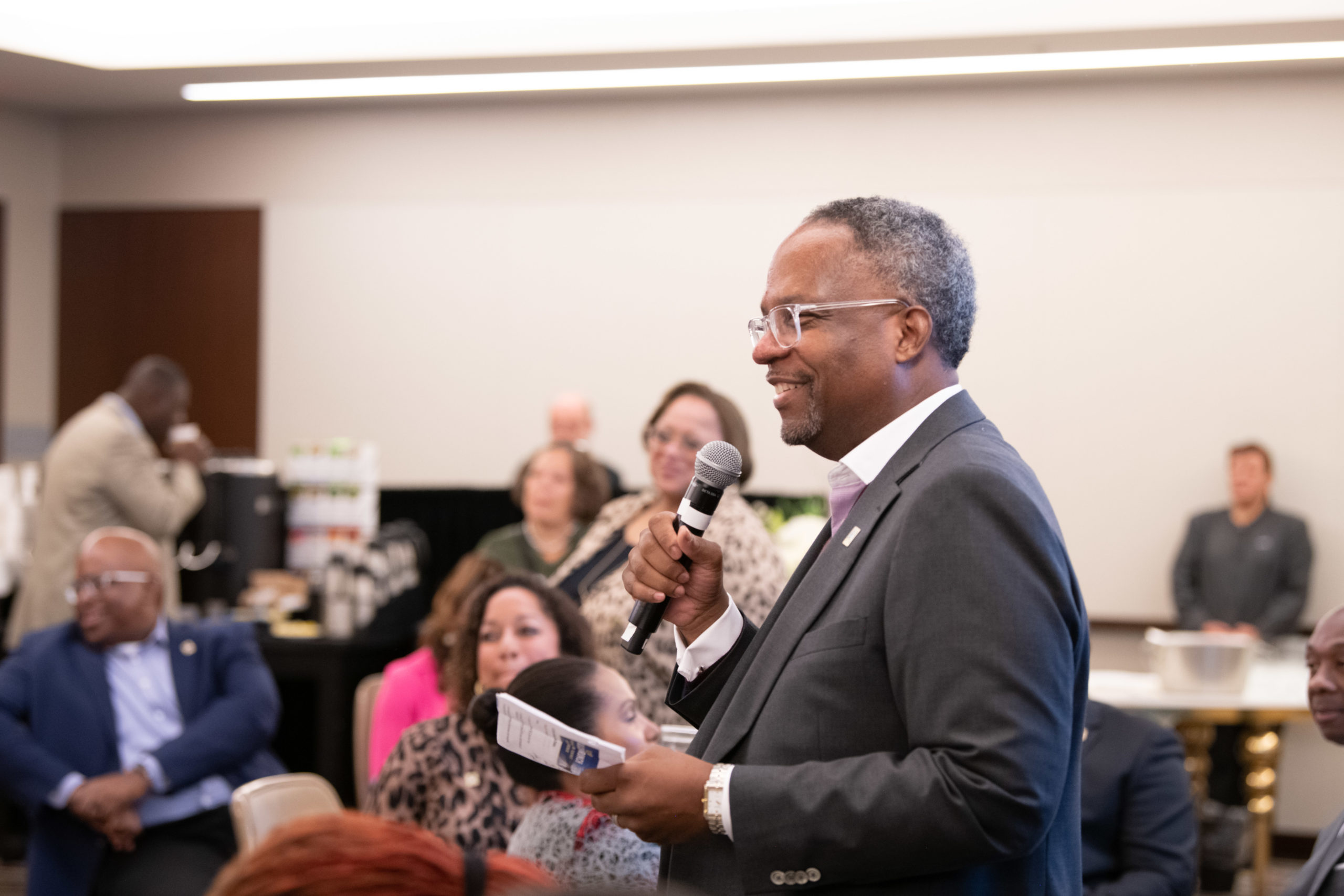
ELC President and CEO Michael C. Hyter speaks to members of The Executive Leadership Council attending a brunch meeting held the morning after the 2022 ELC Recognition Gala in Washington, D.C.
When DEI executives successfully navigate an environment that is not always welcoming or supportive, they are able to help their colleagues recognize the value of Black contributors. The ELC will expand its philanthropic impact on the community beyond its scholarships and leadership development programs to leverage all its stakeholders. We want to create a culture of inclusion in which the talents of Black executives are equally celebrated.
We will explore opportunities to convene DEI executives to share best practices and support one another, just as we have done with ELC members across industries and disciplines, to effect sustainable change at scale. We invite you to join us in this effort to create an ecosystem of community and collectivity to promote the power of inclusive leadership.


